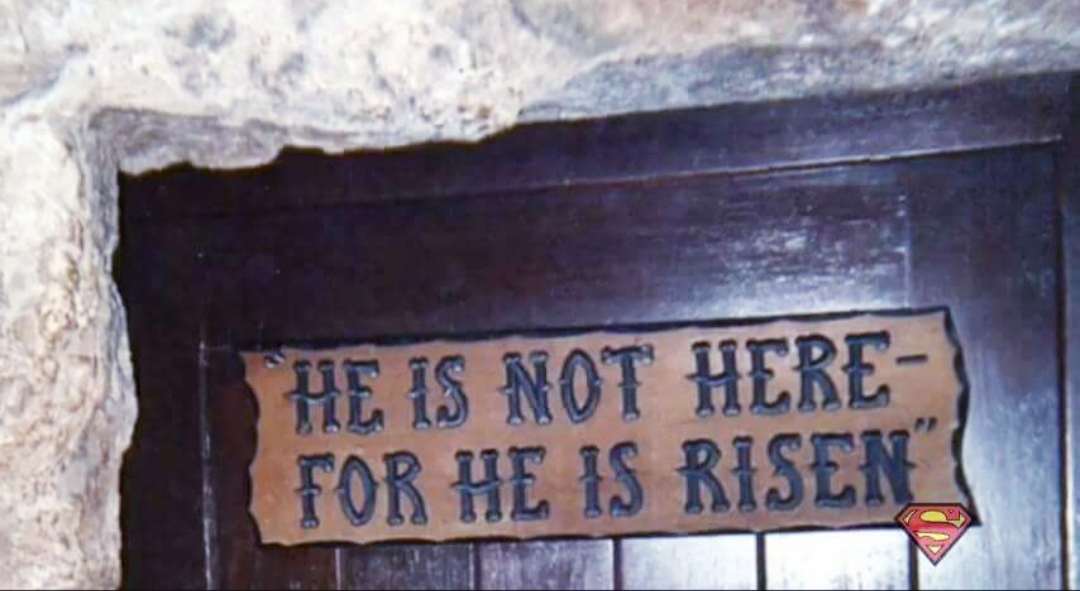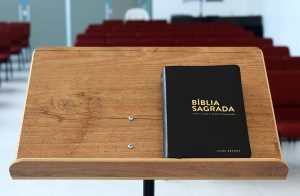- He Made His Grave with the Wicked and with the Rich in His Death – Once mankind fell into sin in the Garden of Eden, the whole human race became infected with a terrible disease – a sin nature – causing every individual to be by nature and practice wickedness (although not as wicked as they could be because of God’s restraint). That is why Jer 17:9 states, “The heart is deceitful above all things, and desperately wicked: who can know it?”. God describes the condition of an unsaved person’s heart very early in the Bible in Gen 6:5: “And GOD saw that the wickedness of man was great in the earth, and that every imagination of the thoughts of his heart was only evil continually”. We also know that man is spiritually dead from conception, as we find in Psa 51:5, “Behold, I was shapen in iniquity; and in sin did my mother conceive me”. The big problem that man faces is, his inability to see his own sinfulness. He is blinded to it. In fact, he actually thinks he is “righteous”, or “good” , or “spiritually rich”. In Pro 30:12 one discovers, “There is a generation that are pure in their own eyes, and yet is not washed from their filthiness”. People who are trusting in their own works are “pure in their own eyes”, but are “filthy” in God’s eyes (Isa 64:6). The “trouble” that mankind faces is the penalty of their sin which awaits them, which is the wrath of God. In Nah 1:3 we read, “The LORD is slow to anger, and great in power, and will not at all acquit the wicked …” We also read in Psa 7:11 “God judgeth the righteous, and God is angry with the wicked every day”. God does not delight in punishing those that are not His people; and yet sin has to be dealt with. We find these words in Eze 33:11, “As I live, saith the Lord GOD, I have no pleasure in the death of the wicked; but that the wicked turn from his way and live …”. The “wicked” in Psa 9:17 are all those from all the nations of the world who are unsaved on Judgment Day: “The wicked shall be turned into hell, and all the nations that forget God”. The “death” in view here is “second death”, eternal punishment (Hell). Job 24:19 says, “Drought and heat consume the snow waters: so doth the grave those which have sinned”. So what is the hope for this wicked man? 1 Pet 3:18 reveals: “For Christ also hath once suffered for sins, the just for the unjust [wicked], that he might bring us to God, being put to death in the flesh, but quickened by the Spirit …”. Col 1:21–22 affirms, “And you, that were sometime alienated and enemies in your mind by wicked works, yet now hath he reconciled. In the body of his flesh through death, to present you holy and unblameable and unreproveable in his sight …”. Christ has to be numbered with the wicked and suffer the punishment reserved for the wicked, to make the wicked righteous. To symbolize this, we learn in Mat 27 that the Lord Jesus was placed in the new tomb of a wealthy man, Joseph of Arimathaea.
Isa 53:9 “And he made his grave with the wicked, and with the rich in his death; because he had done no violence, neither was any deceit in his mouth.”
Psa 36:1–4 “The transgression of the wicked saith within my heart, that there is no fear of God before his eyes. For he flattereth himself in his own eyes, until his iniquity be found to be hateful. The words of his mouth are iniquity and deceit: he hath left off to be wise, and to do good.”
Isa 53:12 “Therefore will I divide him a portion with the great, and he shall divide the spoil with the strong; because he [Christ] hath poured out his soul [second death] unto death : and he was numbered with the transgressors; and he bare the sin of many, and made intercession for the transgressors.”
Psa 88:1–8 [Messianic] “O LORD God of my salvation, I have cried day and night before thee: Let my prayer come before thee: incline thine ear unto my cry; For my soul is full of troubles: and my life draweth nigh unto the grave. I am counted with them [wicked] that go down into the pit [grave]: I am as a man that hath no strength: Free among the dead, like the slain that lie in the grave, whom thou rememberest no more: and they are cut off from thy hand. Thou hast laid me in the lowest pit, in darkness, in the deeps. Thy wrath lieth hard upon me, and thou hast afflicted me with all thy waves. Selah. Thou hast put away mine acquaintance far from me; thou hast made me an abomination unto them: I am shut up, and I cannot come forth.”
Mat 27:57–60 “When the even was come, there came a rich man of Arimathaea, named Joseph, who also himself was Jesus’ disciple: He went to Pilate, and begged the body of Jesus. Then Pilate commanded the body to be delivered. And when Joseph had taken the body, he wrapped it in a clean linen cloth, And laid it in his own new tomb, which he had hewn out in the rock: and he rolled a great stone to the door of the sepulchre, and departed.”
- He Had Done No Violence, Neither was Any Deceit in His Mouth – We have just looked at the wickedness of man, and how Christ came to redeem the wicked, as Acts10:38 teaches, “How God anointed Jesus of Nazareth with the Holy Ghost and with power: who went about doing good, and healing all that were oppressed of the devil; for God was with him”. “He had done no violence” but He went doing about only good. 1 Pet 2:22–25 says: “Who did no sin, neither was guile found in his mouth: Who, when he was reviled, reviled not again; when he suffered, he threatened not; but committed himself to him [God] that judgeth righteously …”. His mission is outlined in Luke 4:18. Heb 1:9 declares, “Thou hast loved righteousness, and hated iniquity; therefore God, even thy God, hath anointed thee with the oil of gladness above thy fellows”. “Neither was any deceit in his mouth” – indeed, we discover in John 1:14,“And the Word was made flesh, and dwelt among us, (and we beheld his glory, the glory as of the only begotten of the Father,) full of grace and truth” After all, would we expect anything less from the One Who proclaimed Himself to be “… the way, the truth, and the life…” according to John 14:6? 1 John 3:5 further states, “And ye know that he was manifested to take away our sins; and in him is no sin”. Heb 4:15 gives more evidence: “For we have not an high priest which cannot be touched with the feeling of our infirmities; but was in all points tempted like as we are, yet without sin”. Not only was Christ the sinless High Priest, He was also the sinless Sacrifice as1 Pet 1:18–19 explains.
Isa 53:9 “And he made his grave with the wicked, and with the rich in his death; because he had done no violence, neither was any deceit in his mouth.”
John 18:10–11 “Then Simon Peter having a sword drew it, and smote the high priest’s servant, and cut off his right ear. The servant’s name was Malchus. Then said Jesus unto Peter, Put up thy sword into the sheath: the cup which my Father hath given me, shall I not drink it?”
Luke 4:18 (quoting Isa 61:1-3) “The Spirit of the Lord is upon me, because he hath anointed me to preach the gospel to the poor; he hath sent me to heal the brokenhearted, to preach deliverance to the captives, and recovering of sight to the blind, to set at liberty them that are bruised; ….”
1 Pet 2:22–25 “Who did no sin, neither was guile found in his mouth: Who, when he was reviled, reviled not again; when he suffered, he threatened not; but committed himself to him [God] that judgeth righteously: Who his own self bare our sins in his own body on the tree, that we, being dead to sins, should live unto righteousness: by whose stripes ye were healed. For ye were as sheep going astray; but are now returned unto the Shepherd and Bishop of your souls.”
1 Pet 1:18–19 “Forasmuch as ye know that ye were not redeemed with corruptible things, as silver and gold, from your vain conversation received by tradition from your fathers; But with the precious blood of Christ, as of a lamb without blemish and without spot.
- Yet it Pleased the LORD to Bruise Him; He Hath Put Him to Grief – Pilate, the Roman governor (who typified God the Father) was authorized to pass judgment on God the Son, Who stood apparently innocent before him, as Jesus declares in John 19:11: “Jesus answered, Thou couldest have no power at all against me, except it were given thee from above: therefore he [God] that delivered me unto thee hath the greater sin”. Though Jesus had no sin of His Own, He had become sin for all the elect. Thus, He was found guilty by His beloved Father, and was required to suffer the penalty of everlasting Hell. Messianic Psalm 109 helps us to see the agony of Christ, who is absolutely Holy and sinless in bearing our sins. He was laden with our sins. He was made sin for us that we might be made Righteous. 2 cor 5:21 affirms “For he [God the Father] hath made him [God the Son] to be sin for us, who knew no sin; that we might be made the righteousness of God in him”. “Bruised” (daka 1792) is translated as “break in pieces”, “crush”, “bruise”, “destroy”, “humbled” and “contrite”. We must remember that Christ’s greatest suffering in the Atonement was spiritual – not physical. That is, He was under tremendous stress and turmoil in His soul existence because He was undergoing the fiery blast furnace of God’s eternal wrath – the equivalent of eternity in Hell – to pay for the sins of those God chose to save from before the foundation of the world. Ecc 2:22–23 is a vivid picture of the fallen human condition: “For what hath man of all his labour, and of the vexation of his heart, wherein he hath laboured under the sun? For all his days are sorrows, and his travail grief; yea, his heart taketh not rest in the night. This is also vanity”. God is incapable of merely “pronouncing” a “wicked” person destined to the “grave” to be “righteous” or “holy” without His divine justice being actually satisfied. What this signified is that the punishment for sin – eternal damnation – must be paid either by the Lord Jesus or by each guilty human being himself. Because God bruised his Son and put him to grief, you and I can stand justified before God. Isa 53:3 depicts both the rejection of Christ by man and ultimately the eternal abandonment by God His Father: “He is despised and rejected of men; a man of sorrows, and acquainted with grief: and we hid as it were our faces from him; he was despised, and we esteemed him not”. The magnificent work of salvation that the Lord Jesus accomplished is so unique, so unparalleled, so surpassing that mere human words cannot be found to describe it – we can only turn to the words of the Bible and look in wonder and stare at Him, Who is portrayed in Isa 53:4, “Surely he hath borne our griefs, and carried our sorrows: yet we did esteem him stricken, smitten of God, and afflicted”.
Isa 53:3-5, 10 “He is despised and rejected of men; a man of sorrows, and acquainted with grief: and we hid as it were our faces from him; he was despised, and we esteemed him not. Surely he hath borne our griefs, and carried our sorrows: yet we did esteem him stricken, smitten of God, and afflicted. 5But he was wounded for our transgressions, he was bruised for our iniquities: the chastisement of our peace was upon him; and with his stripes we are healed. 10Yet it pleased the LORD to bruise him; he hath put him to grief: when thou shalt make his soul an offering for sin, he shall see his seed, he shall prolong his days, and the pleasure of the LORD shall prosper in his hand.”
Luke 4:18–19 “The Spirit of the Lord is upon me [Jesus Christ], because he hath anointed me to preach the gospel to the poor; he hath sent me to heal the brokenhearted, to preach deliverance to the captives, and recovering of sight to the blind, to set at liberty them that are bruised, To preach the acceptable year of the Lord.”
1 John 4:10 “Herein is love, not that we loved God, but that he loved us, and sent his Son to be the propitiation for our sins.






















